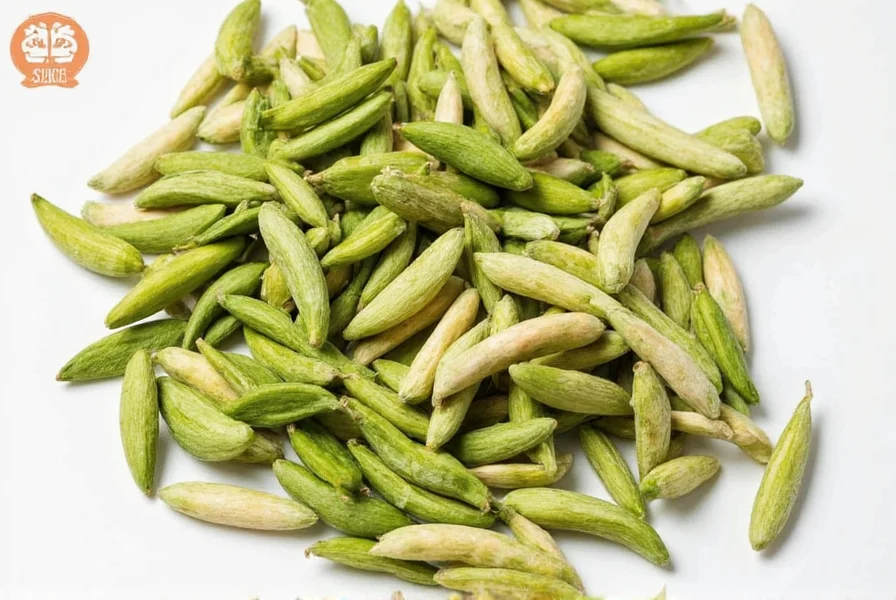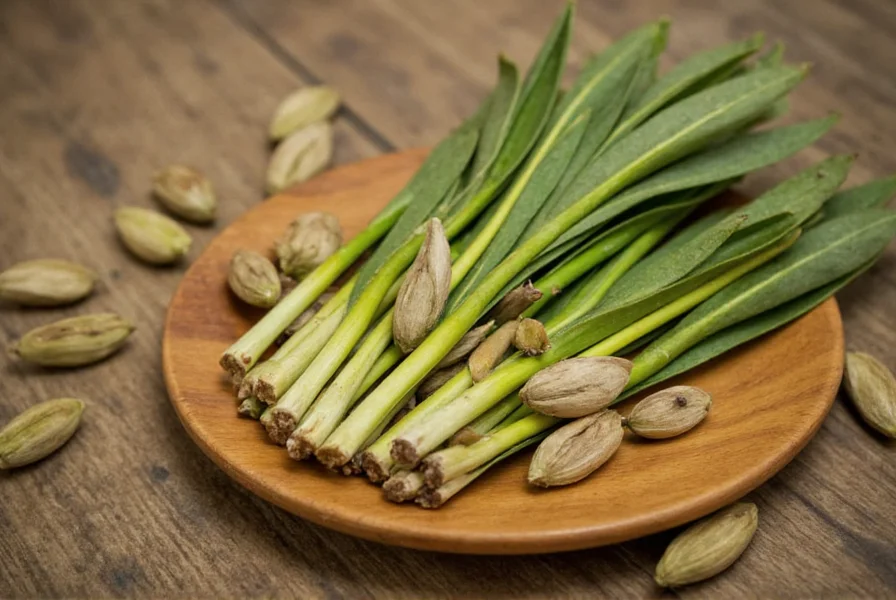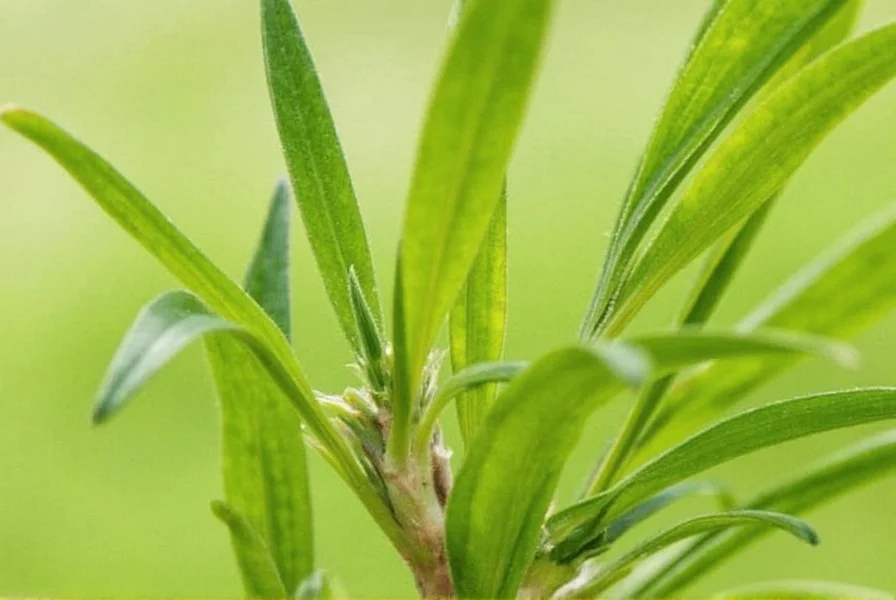Cardamom, often called the “Queen of Spices,” has been treasured for millennia across Middle Eastern, Indian, and Scandinavian cultures not just for its distinctive flavor but for its remarkable health-promoting properties. Modern scientific research continues to validate many of the traditional uses of this aromatic seed pod from the Elettaria cardamomum plant.
Scientifically Supported Health Benefits of Cardamom
Multiple peer-reviewed studies have identified specific health advantages associated with regular cardamom consumption. Unlike many trending superfoods with exaggerated claims, cardamom's benefits are supported by growing clinical evidence.
Digestive Health Enhancement
Cardamom has demonstrated significant potential for improving digestive function. Research published in the Journal of Agricultural and Food Chemistry found that cardamom extract stimulates digestive enzymes and promotes healthy gut motility. This explains why traditional medicine systems have long recommended cardamom after meals to prevent bloating and indigestion.
The spice contains compounds that help relax gastrointestinal muscles while simultaneously increasing bile production, creating an optimal environment for nutrient absorption. For those seeking natural digestive health solutions, incorporating cardamom into daily routines represents a time-tested approach with scientific backing.
Powerful Antioxidant Properties
Cardamom ranks among the most antioxidant-rich spices according to ORAC (Oxygen Radical Absorbance Capacity) measurements. A comprehensive analysis in Food Chemistry revealed that cardamom contains high concentrations of flavonoids and terpenes that combat oxidative stress.
| Antioxidant Compound | Concentration in Cardamom | Primary Benefit |
|---|---|---|
| Cineole | 20-30% | Anti-inflammatory effects |
| Limonene | 5-10% | Cellular protection |
| Terpinyl acetate | 3-8% | Immune support |
These antioxidant properties contribute significantly to cardamom's potential role in reducing inflammation markers throughout the body. Regular consumption may help protect against chronic conditions associated with oxidative damage.

Cardiovascular Support
Emerging research suggests cardamom may positively influence heart health markers. A clinical trial involving 20 participants with stage 1 hypertension, published in the Indian Journal of Medicinal Research, demonstrated that consuming 3 grams of cardamom powder daily for 12 weeks significantly reduced both systolic and diastolic blood pressure.
The spice appears to work through multiple mechanisms: improving endothelial function, reducing oxidative stress in blood vessels, and potentially helping regulate cholesterol metabolism. While not a replacement for medical treatment, cardamom represents a valuable dietary component for cardiovascular wellness.
Culinary Advantages of Cardamom
Beyond its health properties, cardamom offers unique culinary benefits that distinguish it from other spices. Understanding these advantages helps explain its enduring popularity across diverse food traditions.
Flavor Complexity and Versatility
Cardamom provides a distinctive flavor profile that combines citrusy, herbal, and slightly sweet notes. This complexity makes it exceptionally versatile in both sweet and savory applications. Unlike many spices that dominate a dish, cardamom integrates seamlessly while enhancing other flavors.
Professional chefs value cardamom for its ability to add depth without overwhelming other ingredients. When exploring how to use cardamom for health benefits without compromising taste, many discover its remarkable capacity to elevate simple recipes into extraordinary culinary experiences.
Traditional Uses vs. Scientific Evidence
Many traditional applications of cardamom have gained scientific validation, while others remain part of cultural practices without robust clinical evidence. Understanding this distinction is crucial for those seeking evidence-based health benefits of cardamom spice.
For instance, Ayurvedic medicine has long recommended cardamom for respiratory health. Modern research partially supports this, showing that cardamom's cineole content may help relax bronchial muscles. However, claims about cardamom curing specific respiratory conditions lack sufficient clinical evidence.
Similarly, while traditional medicine systems have used cardamom for centuries to support kidney function, current scientific research provides only preliminary evidence for this application, primarily from animal studies.

Practical Applications for Maximum Benefits
To experience the genuine advantages of cardamom, proper preparation and consumption methods matter significantly. The bioactive compounds in cardamom respond differently to various preparation techniques.
Optimal Preparation Methods
Research indicates that grinding whole cardamom pods just before use preserves more volatile compounds than using pre-ground spice. For digestive benefits, adding cardamom to warm (not boiling) liquids helps extract beneficial compounds without degrading heat-sensitive components.
Cardamom tea benefits are maximized when steeped for 5-7 minutes in water heated to 175-185°F (80-85°C). This temperature preserves the delicate terpenes responsible for many therapeutic effects while effectively extracting water-soluble compounds.
Recommended Daily Intake
Based on current research, consuming 1.5-3 grams of cardamom daily (approximately 1/2 to 1 teaspoon of ground spice) appears safe and potentially beneficial for most adults. This amount can be distributed throughout the day in various culinary applications.
It's important to note that while cardamom nutritional value is impressive, it should complement rather than replace conventional medical treatments for specific health conditions. Those with gallstones should consult healthcare providers before significantly increasing cardamom consumption, as it may stimulate bile production.
Cardamom in Context: Comparing Spices
When evaluating cardamom vs other spices health benefits, it's essential to recognize that each spice offers unique advantages. Cardamom stands out for its distinctive combination of digestive support, antioxidant capacity, and flavor versatility.
Unlike turmeric, which requires black pepper for optimal absorption, cardamom's beneficial compounds are readily bioavailable. Compared to cinnamon, cardamom provides similar antioxidant benefits without the coumarin content that can be problematic in large quantities.
Understanding these distinctions helps consumers make informed choices about incorporating various spices into their diets for comprehensive health support.
Frequently Asked Questions
What are the most scientifically supported health benefits of cardamom?
The most scientifically supported benefits include improved digestive function, potent antioxidant effects, and potential cardiovascular support. Research shows cardamom stimulates digestive enzymes, contains high concentrations of beneficial compounds like cineole, and may help regulate blood pressure when consumed regularly in culinary amounts.
How much cardamom should I consume daily for health benefits?
Studies suggest 1.5-3 grams daily (approximately 1/2 to 1 teaspoon of ground spice) provides potential benefits without risk for most adults. This amount can be distributed throughout the day in various culinary applications like teas, baked goods, or savory dishes.
Can cardamom help with digestion and bloating?
Yes, multiple studies confirm cardamom's digestive benefits. It stimulates digestive enzymes, promotes healthy gut motility, and helps relax gastrointestinal muscles. Many cultures traditionally consume cardamom after meals specifically to prevent bloating and support digestion.
Is there a difference between green and black cardamom health benefits?
Yes, green cardamom (Elettaria cardamomum) contains higher concentrations of cineole and is primarily studied for digestive and antioxidant benefits. Black cardamom (Amomum subulatum) has a smokier flavor and different compound profile, with research suggesting stronger anti-inflammatory properties but less digestive support.
Can cardamom interact with medications?
Cardamom may interact with blood pressure medications due to its potential hypotensive effects. Those taking anticoagulants or managing gallstones should consult healthcare providers before significantly increasing consumption, as cardamom may stimulate bile production and has mild blood-thinning properties.











 浙公网安备
33010002000092号
浙公网安备
33010002000092号 浙B2-20120091-4
浙B2-20120091-4